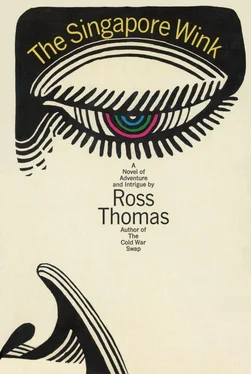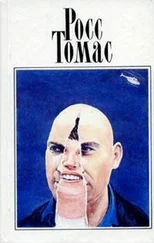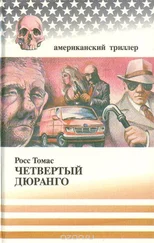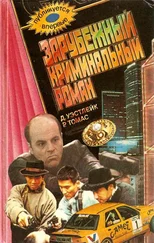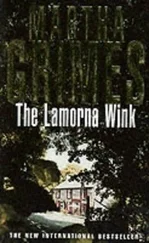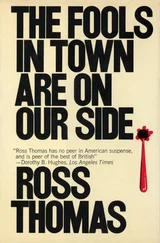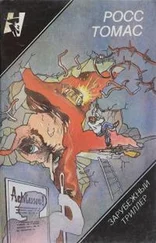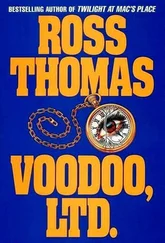When we were finished I asked Carla if she would like to take a trishaw back to the hotel.
“You mean one of those things where the man rides a bicycle in front?”
“Yes.”
She shook her head. “That’s where I draw the line, Cauthorne. I’ll do a lot of things, but I’m not going to cause another human being to have a heart attack because he has to pull me around.”
“You’re thinking of rickshaws,” I said. “They don’t have them in Singapore any more. I think the rickshaw men used to last a maximum of five years before they died of tuberculosis.”
“How long do they last pumping away on their bicycles?”
“I don’t know,” I said.
“Really? What a pleasant surprise.”
Before I could say something clever to that a cab appeared and I hailed it. The driver just missed a very old woman who hobbled along on tiny feet that must have been bound when she was a child, cut smartly in front of a long-haired Chinese youth on a big Honda, and came to a stop before us as if he were surprised that his brakes still worked.
I have a theory, largely unsubstantiated, that countries whose traffic moves on the left have a higher accident rate than those where it keeps to the right. It may be an entirely provincial notion, but it was lent additional support by the driver who cowboyed us the short distance back to the Raffles, never keeping more than four inches between his bumper and the car in front, and passing a couple of times when there wasn’t any space to pass. Despite my former trade, I kept closing my eyes at crucial moments which seemed to occur every fifty feet or so. It apparently didn’t bother Carla Lozupone at all.
At the hotel, I paid the driver, tipped him handsomely because I was glad to be alive, and suggested a brandy in the courtyard to Carla. She agreed and we sat there, sipping Courvoisier under the palm trees, and admiring the golf-green-like grass.
“What’s on for tomorrow,” she said. “More local color?”
“I have to see a man.”
“What about?”
“He may have some suggestions about where I can find Angelo Sacchetti.”
“And if he doesn’t?”
“I don’t know,” I said. “I may run an ad in the personal column.”
“When do you see the man?”
“At ten.”
She looked at her watch. “I think I’ll go on up,” she said. “I’m a little tired.” I started to rise, but she added: “You may as well finish your drink. Knock on my door when you get back from your appointment.”
“All right.”
I watched her walk across the courtyard and enter the hotel. For no good reason at all, I left some bills on the table and followed. Carla Lozupone entered the lobby, turned towards the entrance, and spoke briefly to the turbaned Sikh doorman under the canopy. He whistled up a cab and Carla got in. I looked at my watch. It was ten-thirty and I wondered where a girl who didn’t know anyone in Singapore might be going at that time of night. I was still wondering when I fell asleep a little after midnight.
Lim Pang Sam’s office was on the ninth floor of the Asia Building on Raffles Quay not too far from Telok Ayer Basin. It was a corner office with a fine view of the harbor. A secretary ushered me in and Lim rose from behind a teak desk, walked around it, shook hands with me, said he was delighted that I was in Singapore, and managed to sound as if he really meant it.
“I have a letter for you from Trippet,” I said and handed the envelope to him. He read it, standing up, and smiled.
“I never could understand what Dickie is doing in the car business,” Lim said.
“His wife says that he likes to get out of the house.”
Lim read the letter again and smiled once more. “We were at school together, you know.”
“So I understand.”
“Please,” Lim said, motioning to one of the teak and fabric chairs that was drawn up to his desk. “I was about to have some tea. Would you care to join me, or do you prefer coffee?”
“Tea would be nice.”
He picked up his telephone, pushed a button, and said something in what I took to be Mandarin Chinese. He was a smooth-faced man of middle height, with just the trace of a pot. He must have been Trippet’s age or even older, but his hair was full and black and his eyes were steady and clear behind gold-rimmed Ben Franklin glasses that he wore half-way down a broad nose. His dress was that of the typical Singapore businessman: white shirt, tie, and slacks. His voice and accent were very much like Trippet’s and when he smiled, which he did often, I couldn’t help but feel that he enjoyed doing whatever he did.
The secretary served the tea and Lim kept the ceremony to a minimum. After his first or second sip, he leaned forward in his chair, offered me a Lucky Strike which I accepted, and lit it for me with a silver desk lighter.
“American cigarettes are one of my vices,” he said. “It always make me feel rather relieved when I find someone else who still smokes. So many of my friends and acquaintances have quit.”
“They are probably wise.”
“No doubt,” he said and smiled again. “But one of the keenest pleasures in life is to succumb to one’s vices.”
I smiled at that and sipped my tea. “Dickie’s letter says that you are here on a confidential matter,” he said.
“Yes,” I said. “I’m looking for someone. An American.”
“May I inquire whom he might be?”
“A man named Angelo Sacchetti.”
“Yes,” Lim said in noncommittal voice, drummed his fingers on the desk, and peered at me over his spectacles.
“By that I take it that you may know him,” I said.
“No, I don’t know him. Let us just say that I’ve heard of him. He—” Lim broke off and turned around in his chair to take a look at the harbor. He enjoyed the view for a few moments before he spun around and spoke. “Mr. Cauthorne, please excuse what you may consider to be my rudeness, but you are not with the CIA or one of those other intelligence organizations that the Americans and the British seem to be so fond of creating?”
“No,” I said. “I’m not with the CIA.”
There was a pause and Lim swung his chair around so that he could count the ships in the harbor. “I’m sure that Dickie would not have provided a letter of introduction if you were, but still I had to make sure.”
“Maybe the letter’s a fake.”
Lim swung back again and gave me another smile. “No,” he said, “after you telephoned yesterday, I called Dickie in Los Angeles. You are who you say you are. More tea?”
“Please. It seems strange that a businessman would go to all that trouble, but then I’d say that you are more than just a businessman.”
“Yes, it does seem that way doesn’t it?” Lim said as he poured my tea.
I decided that if Lim had something that he wanted to tell me, he would, so we sipped our tea and looked at each other over the rims of our cups until Lim made up his mind about what he wanted to talk about next.
“We are a small nation, Mr. Cauthorne. A tiny one of only two million persons and seventy-five percent of us are Chinese. We have great wealth here and also great poverty, although it is not nearly as severe as it is in other Asian countries. Next to Japan, I suppose, Singapore is better off than any other country. Asian, that is. We are southeast Asia’s major entrepot, or at least we like to think so and our economy rests primarily on this international trade, although we are making some progress in industrialization. Still, we have neither the time nor the money to engage in the full-time business of espionage. But we are curious about persons who come to Singapore and take up residence here. Not that we don’t welcome foreign capital — from virtually anyplace — but still we are, shall we say, rather curious.”
Читать дальше
